Top Ten Japanese Family Names That Are Unique

Some people didn't have to win a beauty pageant to be called "Miss Kyoto."
If you've made a moderate amount of Japanese social or business acquaintances, or even just enjoy video games or anime set in Nihon, odds are there are a few family names you lot're familiar with. Sato and Suzuki are by far the most common surnames in Japan, with others such equally Takahashi and Tanaka also showing up very oft.
But what about the other end of the spectrum? Myoji Yurai Net, a Japanese surname database, recently released the results of a report in which researchers analyzed information from government statistics and phone books in order to compile a list of the 30 rarest Japanese family names.
Let's take a look at the rankings:
30. Ikari / 五十里
Meaning: 50 villages
While the pregnant might not be so dramatic, when written with different kanji characters, ikari tin also mean "anger" or "anchor." According to Myoji Yurai Net's written report, approximately ane,300 people across Japan acquit this surname.
29. Shio / 塩
Meaning: salt
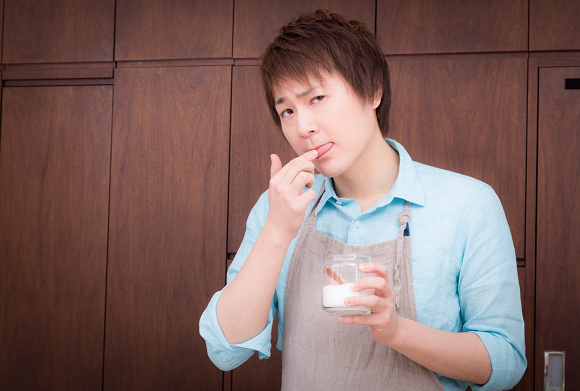
To analyze, this isn't a name that etymologically traces back to the discussion "common salt," but i that's written and pronounced exactly like shio, the Japanese word for tabular array salt.
28. Shikichi / 敷地
Pregnant: building site
27. Tsukumo / 九十九
Significant: 99
99 what? Why not 100? We take then many questions.
26. Ichibangase / 一番ケ瀬
Meaning: first rapids, kickoff shoals
25. Myoga / 茗荷
Meaning: Japanese ginger
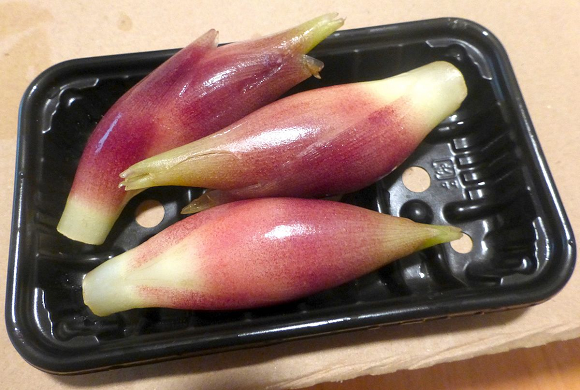
Myoga is the kickoff of a handful of agriculture-based names on the listing, highlighting how much of Nippon's populace was involved in farming prior to the end of the feudal era.
24. Kai / 買
Meaning: shell, shellfish
23. Jinja / 神社
Meaning: Shinto shrine
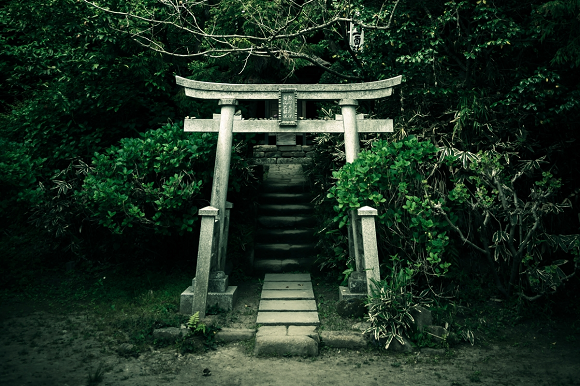
In olden times, Shinto shrines were often the center of civilisation and action in their respective communities, and thus a office of the personal identity of those who lived nearby. Merely while many Japanese surnames contain the kanji 神, meaning "god" or "divine," the rather on-the-olfactory organ Jinja is far less common, beingness the family unit name of only about 330 people.
22. Akasofu / 赤祖父
Meaning: red grandfather
While many Japanese names are reflections of the natural environment, ones that reference people are much rarer, much less one with a specific color.
21. Kon / 根
Significant: root
"Hey, expect a 2d," anime fans are proverb. "What near esteemed Perfect Blue, Paprika, and Tokyo Godfathers managing director Satoshi Kon?" Actually, the belatedly director's surname was written with the kanji 今, significant "now," and while that's also a somewhat unusual family name, it's not as rare as this constitute-based 1.
20. Hirawa / 平和
Pregnant: plain of harmony
19. Botan / 牡丹
Significant: peony
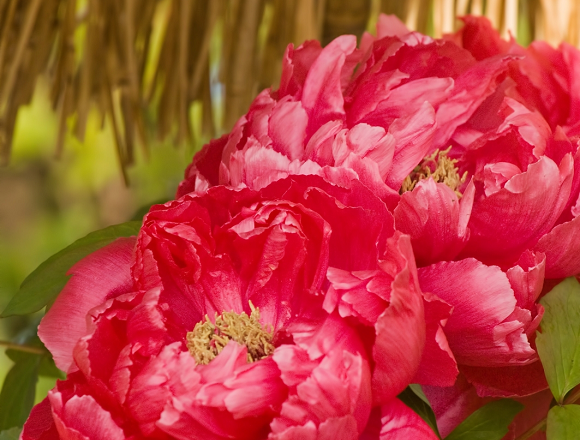
References to copse are common in Japanese names. Matsuda means "field of pines," for example, while Sugimoto is "original cedar." Flowers are less common, though, especially when the name matches up exactly with the name of the blossom.
18. Taue / 田植
Meaning: rice planting
17. Keana / 毛穴
Meaning: (skin) pores
16. Mizoroge / 御菩薩池
Meaning: honored Bodhisattva pond
15. Senju / 先生
Meaning: teacher

While senju is a pretty old-schoolhouse term to use for an educational teacher, the kanji characters 先生 are the exact same ones used to write sensei, the standard mode of addressing schoolteachers and doctors in Japanese.
xiv. Suisha / 水車
Pregnant: water wheel, manufactory
13. Kyoto / 京都
Pregnant: Kyoto, Japan's former capital city
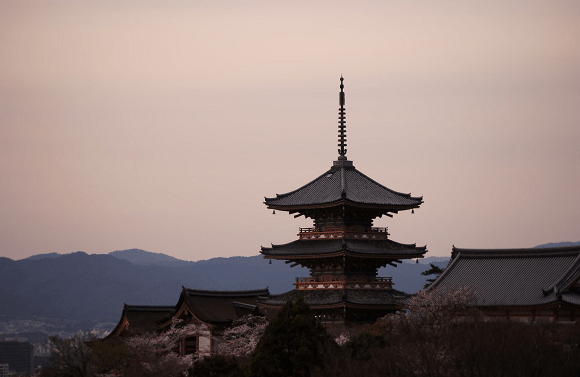
Surnames that are besides identify names aren't entirely uncommon in Japan. In many cases, though, they're coincidences born out of a reference to the natural landscape serving equally inspiration for the name of a family and location. Chiba ("one thousand leaves") and Matsumoto ("original pine") are often-heard family names, but they're too a prefecture and city, respectively.
On the other hand, Kyoto means "upper-case letter city," making this a instance of a family proper name being derived from the name of an already established identify.
12. Momo / 百百
Meaning: Hundred hundred
Momo is as well the Japanese word for "peach," but in the instance of the fruit, the kanji 桃 is used instead. Making things fifty-fifty odder is that Japanese already has a word for a hundred hundreds, man, which means "ten m."
eleven. Wamuro / 和室
Meaning: harmonious room
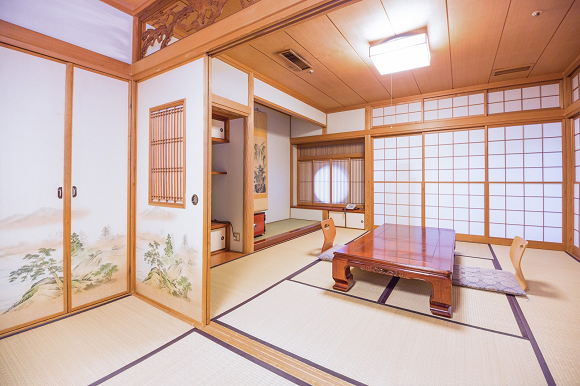
While the original intent was likely an auspicious innuendo to a peaceful home and family, 和室 tin too be read every bit washitsu, a Japanese-style room with tatami reed floor.
10. Tokei / 時計
Pregnant: watch, clock
9. Nosaku / 農作
Significant: agricultural products
8. Kajiyashiki / 鍛冶屋敷
Pregnant: blacksmith'south mansion
7. Gogatsu / 五月
Meaning: May (the month)
Only about 30 people in Japan have this family proper noun. Unfortunately, no data is availabe on how many of them are women with the given proper name Satsuki, which can also mean "May" and be written with the aforementioned 五月 kanji.
6. Hime / 姫
Meaning: princess
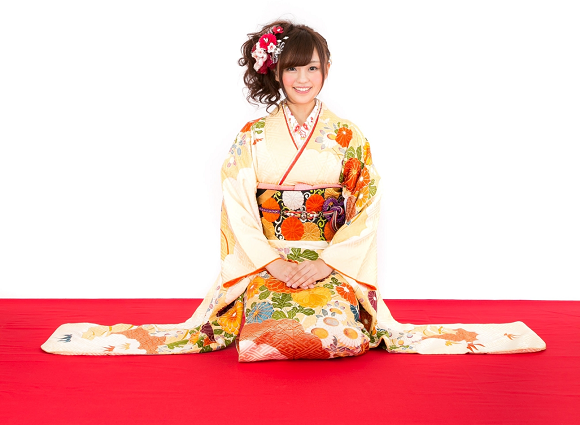
5. Higasa / 日傘
Pregnant: parasol
four. Iekami / 家神
Significant: home god
3. Dango / 団子
Meaning: dumpling
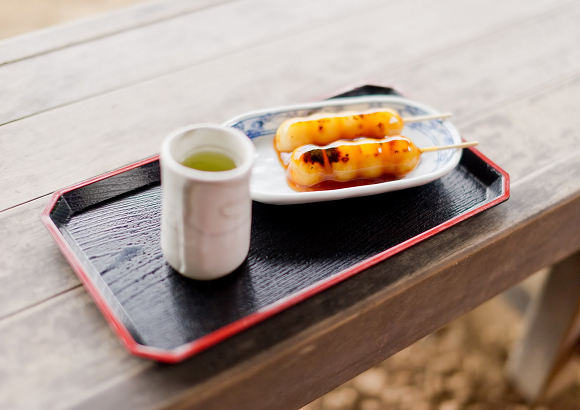
We've seen a couple of foodstuffs on the list and then far. This name, though (which like all of the top iii is but held by about 10 people in Japan), is the first dessert.
2. Hinode / 日ノ出
Pregnant: sunrise
1. Mikan / 蜜柑
Meaning: Japanese mandarin orange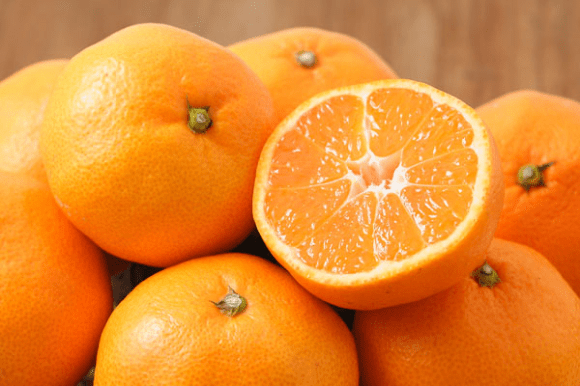
Finally, we wrap up with one concluding edible, and it'south a fitting i, equally the small, sweet mikan makes for a salubrious yet sugariness snack after a meal.
Who knew linguistics could make u.s. so hungry?
Source: Myoji Yurai Cyberspace
Top image: Pakutaso
Insert images: Pakutaso, Wikipedia/Nesnad, Pakutaso (ii, three, iv, five, six, 7, 8), Hanazakari no Mori
[ Read in Japanese ]
Source: https://soranews24.com/2017/05/18/princesses-fruits-and-blacksmiths-study-reveals-the-30-most-unusual-family-names-in-japan/
0 Response to "Top Ten Japanese Family Names That Are Unique"
Post a Comment